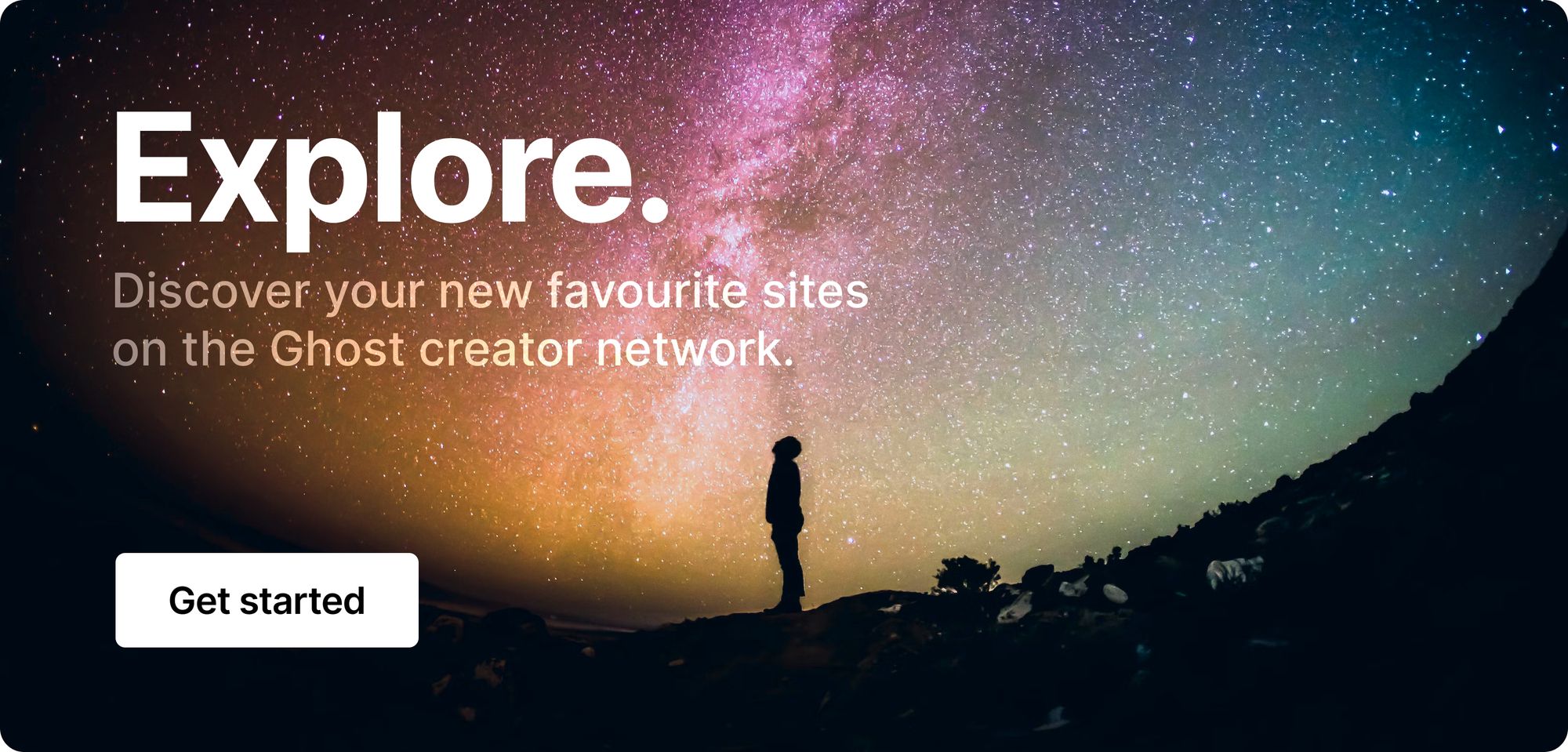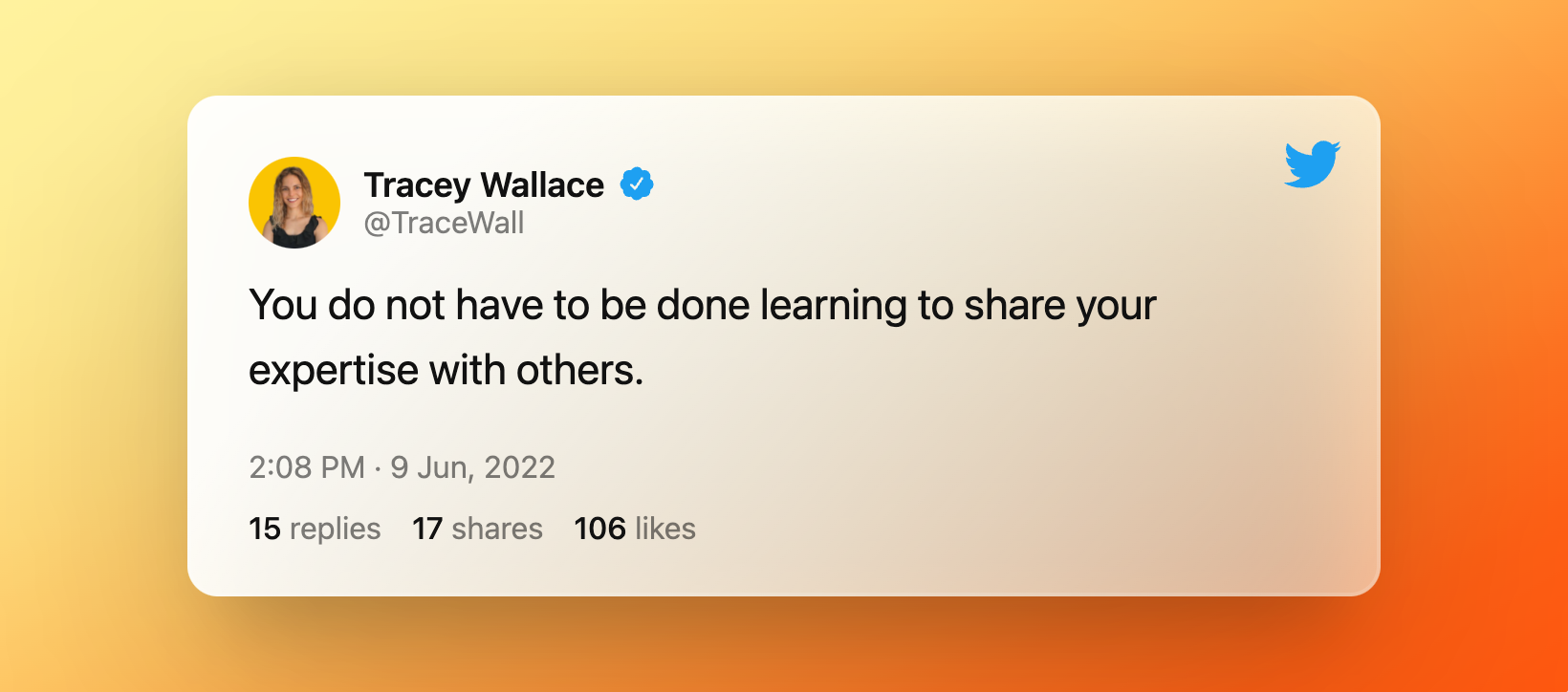🎁 The gift of doubt
Uncertainty precedes discovery. Not knowing how to complete a task or what the outcome will be is scary, which is why most people freeze. They stop taking action until they know more. Until they can be sure.
But life and business don't work like that.
If you want to create the content and reach the audience and build the revenue you think is possible, then you must learn to lean into uncertainty. Embrace the doubt. Because taking action is the only way to find the answer you're after.
💬 In this week's issue:
- Streams. Can ads play a role in a successful subscription business?
- Fifty. See how one creator turned their curiosity into their full-time income in under a year.
- Statesmanship. It seems like politics are everywhere these days, but should they be in your newsletter?
🛍 The pros and cons of ads in publishing
I don’t think I’m being profound when I say that revenue diversification is a good thing.

Advertising is a tricky subject. On the one hand, businesses rely on it to grow, reach new audiences, and scale their impact. But on the other, ads can subtract from the user experience, decrease conversions, and introduce unnecessary complexity to a business.
Media expert Simon Owens examined both sides of the argument in light of The New York Times buying The Athletic. Both publishers were able to build tremendous subscription-based businesses. However, for The Athletic, that single source of revenue wasn't enough — which is what led to them eventually being acquired.
The takeaway for creators is to begin building a web of value from day one. Work to understand all the ways you can monetize your content, then pick the ones that make sense for you and your readers.
The goal should always be to build a sustainable business by providing value. How you turn that value into cash is up to you.
🗞 Latest tips & stories
- Is guest posting still worth it?
- 10 Twitter growth hacks that actually work
- How to monetize your podcast
- 7 blogging best practices to find your audience
- A creator's guide to prioritizing what's important
🪄 50 lessons learned from writing 50 newsletters
You don’t know what you don’t know, and there is no magic formula.

Anne-Laure Le Cunff didn't start their newsletter Maker Mind with any grand ambitions. They simply wanted a place to capture and share what they were learning about the intersection of neuroscience and creativity.
However, after a year of writing, Le Cunff's audience swelled to tens of thousands of readers and sprouted a six-figure business. The author recently examined their wild ride and shared 50 of the most important lessons learned along the way.
Among the 50 ideas listed, a few themes stood out.
- Be realistic. A key point Anne-Laure made was that their expectations around how much they could write, how often they could publish, and how much they could handle were initially over-optimistic. It's better to rein in what you think is possible and focus on small, consistent wins to get the momentum started.
- Make it easy. Another excellent idea was to make everything about your newsletter easy: easy to subscribe, unsubscribe, read, and share. Be intentional about your formatting, theme, and language. The more readers look forward to your newsletter, the faster it will grow.
- Play the long game. Writing for a target audience is a slow burn. It takes time to gain traction, for people to spread the word, and for you to become exceptional. Remember to choose goals that encourage and reward longevity. As saying goes, "all overnight success takes 10 years."

📍 How local news can help inform voters
News organizations can help prepare voters as they head to the polls.

Elections are at the forefront of people's minds worldwide, either as they prepare for upcoming ones or react to the results of contested battles.
Whether or not you produce a political publication, there are ways you can stay informed or support those leading important projects.
- Discover and financially support political newsletters. Independent publications are vital because they often present a viewpoint not shared by mainstream media venues. You can use a tool like Ghost's Explore to begin your search.
- Create a limited series about an important topic. One example from Nieman Lab was an organization that made an 18-episode podcast about the local mayor race. Diving into a political subject doesn't need to be an everlasting venture. Time-sensitive issues are perfect for limited-run newsletters and special editions.
- Host community listening sessions. Even in non-political niches, there may be areas that overlap with trending issues. One idea is to make space for these by hosting livestreams with your audience or encouraging them to email you questions or content ideas. Talking about controversial topics is not necessary, but can be a way to deepen your relationship with readers.
👀 Curators pick

❤️ Enjoy this newsletter?
Forward to a friend and let them know where they can subscribe (hint: it's here).
Anything else? Hit reply to send us feedback or say hello.
Join an invite-only community! Connect with like-minded people who create content professionally — apply here.






